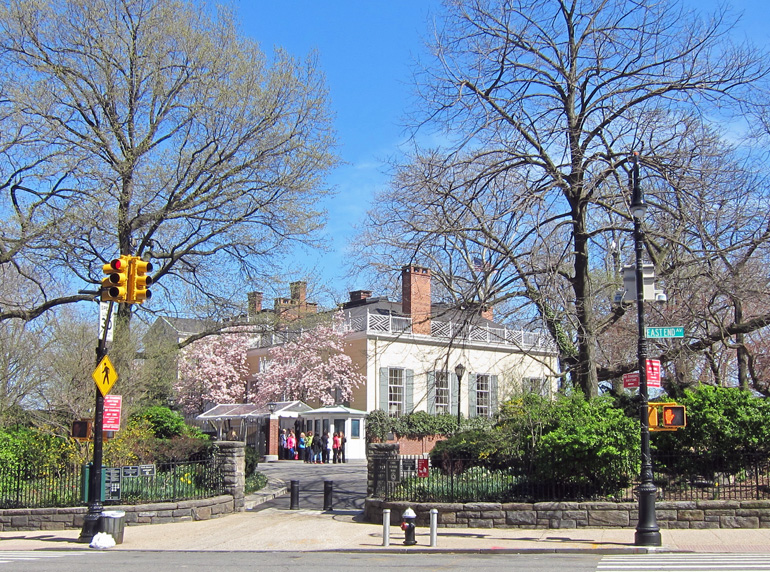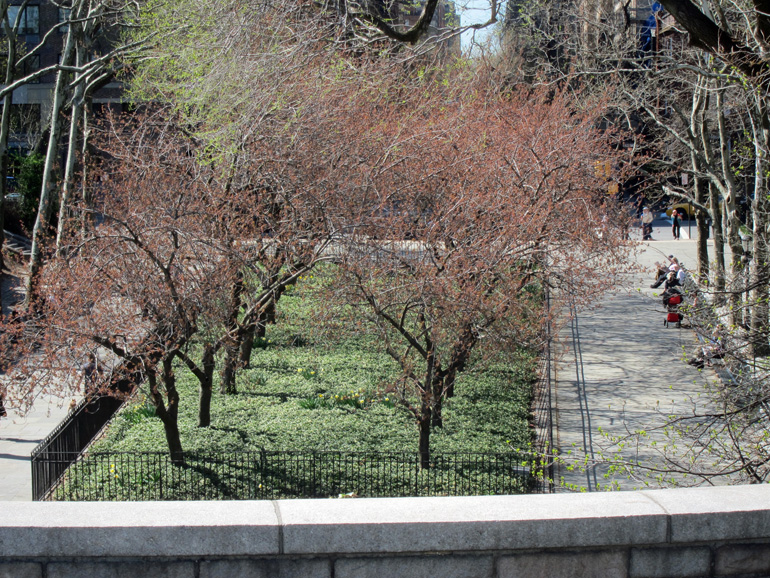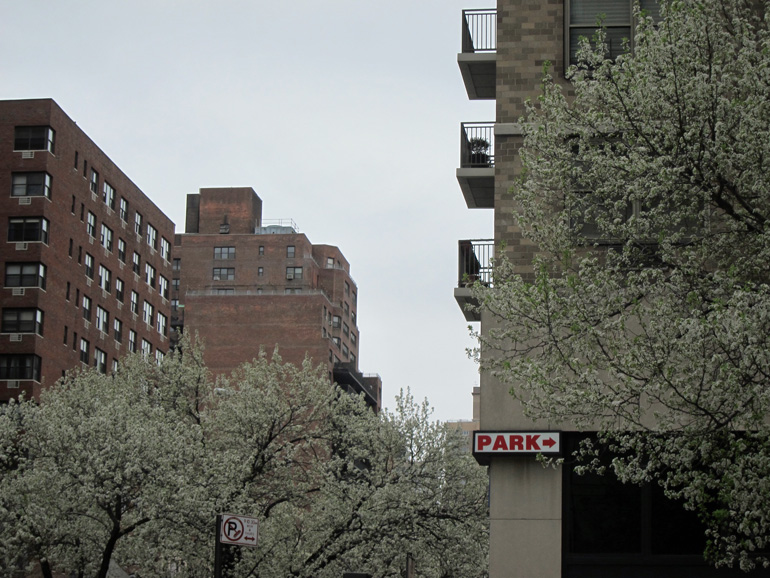
Trying to puzzle out why Anthony Kimmins’s 1953 vehicle for Alec Guinness, The Captain’s Paradise, isn’t better known — doesn’t make anybody’s top-ten list of high comedies — I conclude that the film was ahead of its time. If I was squirming with agony of irony as I sat through the video yesterday, that might well have been because I was doing so sixty years later. The movie is funnier now, that is, than it was when it was made.
And it is funnier because of Celia Johnson, who gets third billing, after Yvonne DeCarlo if you please. We all know Johnson’s immortal performance in Brief Encounter, arguably the most deliciously sad movie ever made, and most of us have seen her her as Miss Jean Brody’s adversary, the formidable Miss Mackay. But these movies are as sleepwalkers compared with The Captain’s Paradise, because they make no call on Johnson’s surprising aptitude for burlesque. “Burlesque!” you splutter — I have gone too far this time surely. But, just as strippers send up the provocations of jeunes filles en fleur, so Johnson devastatingly mocks the fortitude of the bored housewife.
I’ve never been sure just what it means for a movie to have been an “Ealing comedy.” I don’t know, that is, what expectations an audience would have before the houselights went down. Certainly a comedy that begins with a bedraggled Alec Guinness being led before a firing squad, visibly enduring the “ready” and the “aim” but not the actual “fire,” which is only heard offscreen (crows scatter from their perches), is not going to be a story about how Guinness’s character died. But you have no idea why he was led before the firing squad until the very end, by which time you’ve exhausted yourself trying to connect the “paradise” that he has discovered to a capital offense. Entertaining in the foreground, the film is subliminally exhausting. And then, when it has you sitting there helpless, it whacks you with what Aristotle called “peripeties,” and the movie is over — hugely satisfying — before you’ve caught your breath.
The paradise of the title is, of course, bigamy. That’s why Jeanine Basinger discusses it briefly in her new book, I Do and I Don’t, which is how I discovered the film’s existence. “What a movie man wants in a movie woman can easily be summed up: everything.” The synopsis of The Captain’s Paradise that immediately follows is good so far as it goes, but it says nothing about Johnson’s performance, perhaps because, after all, the topic sentence here is about men. Seen as a movie about a scheming ferry captain who is playing with matches, keeping Maud, his proper English wife in Gibraltar and, and Nita, his peppery chiquita in North Africa (in a town that seems to be fictional, perhaps in the interest of discouraging vice in English audiences) in a state of mutual ignorance, The Captain’s Paradise is a farce in which a highly unlikely modus vivendi is upended by a pair of negligent acts: the captain mixes up his little anniversary presents, giving his babe an apron and his lady wife a bikini, thus “triggering hidden longings in the two wives,” as Basinger puts it. By this time, we have been through a delightful first act in which the suave Captain — and who could be more suave than Alec Guinness? — enjoys the fruits of his paradise, partnering the fiery DeCarlo in heated Spanish dances and calling for “beddie-byes” at ten every night in Gibraltar. He has it all, and we are waiting for him to get caught at it.
He almost does get caught. The passage, which is set in the North African town, is a model of Ealing economy, lasting no more than a couple of minutes, and its plot foundation only appears to have a connection to the captain’s carelessness about those mixed-up presents. In fact it rests an earlier bit of farce, based on the fact that the captain is the only member of his crew with a British passport. This means that not even Ricco, his second-in-command (played by Charles Goldner), can debark at the English base. Ricco knows all about Nita, but he has never heard of any Maud, and when he meets her — something has happened to the ship while in port, the captain can’t be reached by phone, and a British officer vouches to oversee Ricco’s mission to his house (wonderfully called “Mon Repos” — after a spell of wild North African nights, repose is precisely what the captain requires) — Ricco takes her to be the captain’s cook (she is wearing the apron that the captain was able to retrieve from Nita), and leers appraisingly at her physical charms. The looks with which Celia Johnson responds to these unimagined addresses ought to go into an encyclopedia. Outrage plays no part in them. It is Ricco who helpfully brings along the present that the captain left on the boat, “for his mother.” This is how the bikini comes into Maud’s possession. Not the captain’s fault at all, if one can say such a thing. The bikini turns out to be just what Maud wanted — much to the captain’s disconcerted surprise.
Years go by after the captain’s narrow squeak — which, at Maud’s end, he quieted by making her pregnant with twin boys — and we cannot imagine how he is going to screw things up a second time. And then, boom! Matters are literally taken out of his hands. Or perhaps they were never quite in his hands. Again, the movie slily farcifies something that would have happened anyway. A mid-voyage engine mishap on the ferry occasions an unscheduled return to North Africa, where the captain finds Nita packed and ready to leave him. It turns out that her next man was as deceived about the variety of her attachments as the captain, and a gun is fired. The captain is not even in the room when this happens, but now we begin to see a path to the firing squad — which we will completely forget about, however, as the captain’s paradise continues to crumble. In shock at the collapse of one half of his ideal arrangement, the captain soon finds that the other has given way as well: Maud is leaving him. Why? Because he is a cheat? Heavens, no! She has no idea of that. She is leaving the captain because he is so “colossally boring.”
We accept her verdict at once, because it triggers a recent memory: some bounder of a cousin of Maud’s has recently paid a visit and plied Maud with gin. The captain is obliged to accompany them to a dancing venue no longer familiar with the waltz. It is only 1953, but Celia Johnson and her cousin (Walter Crisham) cut a mean boogie-woogie. Now it is Guinness who is shocked. You want to weep, just as you do when you see Barbara Stanwyck in Ball of Fire — what was wrong with the producers who didn’t see the comic potential that these actresses realized when given a chance?
Nita’s complaint about the captain boils down to the same thing. He’s boring in that he wants to do the same thing all the time. Nightclubs at midnight and beddie-byes at ten can be equally monotonous. The captain gets to alternate. His wives do not. He is a complete fool to imagine that they have no requirements by way of change of pace. In fact, he essentializes them, as I believe the word is, one of the nastiest male vices. Describing paradise to Ricco, the captain blithely postulates that Maud is supportive while Nita is beautiful. As though that were all there were to it. It never crosses his mind that Nita will, one fine day, say that he is “getting old.” The horror!
So the problem with The Captain’s Paradise is that it sets up a situation that ought to be resolved by some sort of catastrophic disgrace, but that it clears up in an entirely unrelated, but deeply wise and humane way. The unraveling of paradise is humiliating to the captain, but completely unaccompanied by the public shame that usually belabors discovered cheats. This cheat is never discovered! It is not hard to see the film — now — as a wry feminist fake-out, once you’ve connected the dots that are actually there and stopped looking for the ones that aren’t. The captain of paradise has bored his chosen companions to desperation! To his credit, Guinness knows how to make his debonaire manner curdle into fatuousness —”But you’re cousins!” he objects, when Maud goes off with hers — but this cannot have been a lesson that many audiences in 1953 were going to find amusing. And it is not the lesson that the movie’s ending leaves you with. Remember that offscreen fusillade? That’s the one eventuality that I won’t spoil.
The next time you see Brief Encounter, and are adrift in that “I can’t go on/I’ll go on” limbo that it dumps you in, reach for a copy of The Captain’s Paradise, and Celia Johnson herself will, I assure you, exorcise the ghost of her earlier performance.
***
Upon discovering that there were lots of people at Oxford much smarter than herself — or at least more disposed to do the scholarly — Lynn Barber, whose memoir, “An Education,” was expanded into a life-long memoir after the film adaptation of the Granta chapter, marked another stage of growing up.
But it made for yet another shift from my parents. Cleverness, and academic attainments, were almost the only values they had taught me to aspire to and, as far as they were concerned, I had ticked off all the boxes by getting into Oxford. But once I got to Oxford I realized that cleverness was not all it was cracked up to be — that there were other qualities, like sensitivity, like kindness, like charm, like tact, that I had never given a moment’s thought to, but that were actually far more important. I didn’t quite swing round to Charles Kingsley’s view — ‘Be good, sweet maid, and let who will be clever’ — but I was beginning to think I should pay less attention to being clever and more to being good.
On top that, the Simon debacle [he’s called David in the movie] left me with a strong distrust of book learning, which I still to some extent retain. My feeling was: I’ve read all these books, I’m supposed to be so clever, and yet I couldn’t even spot the most obvious con trick in the world. I felt that what I urgently needed to understand was Real Life and that Milton and Spenser were of no possible help. This was a poor attitude for embarking on a three years study of English Literature. It meant that I read the classics impatiently, instead of luxuriating in them as I had at school, because I was dying to learn about the present day. I think it was this attitude that propelled me toward journalism — I still have a somewhat exaggeratged hatred of anything to do with the past. I must have done some work because I got a perfectly respectable upper second degree for essentially the Eng Lit course that was wasted on me.
I wasn’t just sitting about watching movies yesterday, as I had done earlier in the week. No, now I was well enough to do the ironing. (I was about to run out of handkerchiefs.) After The Captain’s Paradise, I picked An Education, just flipping through one of the DVD drawers. The minute it was over, I rummaged around for Barber’s book, which stood on one bookshelf for years but was recently moved. Reading the passage that I’ve extracted caused me to reflect that I have never been betrayed by anyone. No one has ever surprised me by turning out to be someone other than expected. I don’t know why this is so. Do I see people really clearly from the start? Do I simply never trust them to be consistent? Do I count upon being let down?
I know what betrayal feels like, but from a harmless cause. It happened when a secret, which had been withheld from me during a time in which I might inadvertently have betrayed it had I known it, was told to me after that danger had passed. I was shocked and felt miserably wronged. I soon got over it, but part of the shock owed to the fact that the experience was absolutely new.
I ask because I think that this is one of the odd things about me. I do count upon being let down, all the time, and by everyone. I know that I have no reason for such universal doubt, and I’ve long since learned not so much to act as to be a person untroubled by this fatality — a job made easier by the conviction that I probably ought to be let down. I must say that my ease with this view of things makes me worry a bit about being psychopathic. But psychopaths, as I understand it, feel just the opposite: completely deserving of the good things in life. When I was a child, I assumed that I was being punished because I did bad things, but before I was out of my teens I knew that I was usually punished simply for being myself — mostly for not doing things. (Sports, for example.) The inevitability of punishment was such a settled feature of life that I stopped worrying about it, and so took a long time to notice that anything that could be construed as punishment ceased with the death of my parents. The punishment was, of course, their disappointment, which couldn’t be construed as letting me down because it was so vocally a matter of my letting them down. It took a long time to see that they were the wrong parents for me, and that this was not their fault, because they were not my parents, but had been set up to think and pretend that they were by what I call the Adoption Racket.
The point isn’t that my life might have been better if I hadn’t been adopted. From a material standpoint, it would almost certainly have been much, much less fortunate. The point is that the particular adoption to which I was an involuntary party made me a little strange around the edges. All that disappointment.
I was at a wedding recently when a wave of recognition almost crushed me. My parents would have preferred me to be any other man in the room. (The wedding did not take place in New York City.) Because then I’d have been more congenial, more athletic, smarter, or more popular? They might have said so. But what they’d have meant was: more normal. More like other people.
When Kathleen says that she has never met anybody like me, and that she can’t imagine being married to anyone else, she sweeps away great drifts of pain. Or, not of pain, but of the memory of pain. She doesn’t care if I’m not like anyone else, and that makes two of us. But pain isn’t everything. I’m still a little strange. Book-learning or no, I should never have fallen for Simon Goldman.
Like Lynn Barber, though, I got by on cleverness (usually without her good marks); and I also had to learn about those other qualities that are more important than cleverness.




















